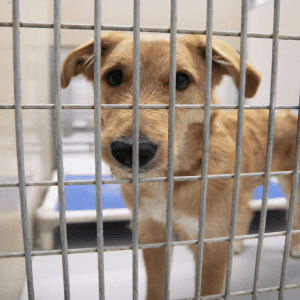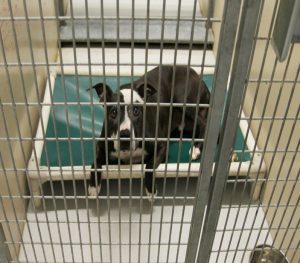Is It Too Hard to Adopt A Dog From a Rescue Shelter?
With so many abandoned dogs in the UK needing homes, there are plenty of campaigns which aim to encourage people to adopt a homeless dog. However, many people claim the adoption process in some cases, is too rigorous and too intrusive. Is this true and is it fair comment that some adoption centres are too ‘picky’ when it comes to potential adopters? Holidays4Dogs explores this topic and offers some tips for would be adopters if they are considering rescuing a dog.
We have heard anecdotes of people who have visited large charities in order to adopt a rescue dog. Some have made comment about the lengthy and meticulous approach to the re-homing process. A process that has, unfortunately, put some people off.
Re-homing criteria.
We are not saying that criteria that many rescue charities set, are not valid. However, one particular national charity, for example, insists that all members of the family and other dogs, visit the shelter prior to adoption taking place.
criteria that many rescue charities set, are not valid. However, one particular national charity, for example, insists that all members of the family and other dogs, visit the shelter prior to adoption taking place.
We heard of someone wanting to adopt a dog from this charity. They were expected to visit the centre, along with an elderly house-bound parent living at the same address. A person who was not going to be responsible for the dog’s care in any way. Needless to say, the family rejected this process and an adoption did not go ahead.
Perhaps this may have been a little over the top. However, amongst other criteria, rescue charities are always keen to know exactly who is in the household and what their role is likely to be with regard to the welfare of the dog.
Re-homing process.
The re-homing process will differ from one animal sanctuary to another. However, most adhere to a broad set of rules. Many charities nowadays require you to fill out an initial on-line questionnaire in order for staff to match you with a suitable dog. However, this is usually on a first come, first served, basis.
 Therefore, if you see a dog you would like to adopt on a re-homing website, there may already be a queue of people ahead of you.
Therefore, if you see a dog you would like to adopt on a re-homing website, there may already be a queue of people ahead of you.
All rescue centres will want to know about the lifestyle of would-be adopters. Many will refuse to re-home any dog to full time workers. In this case, it is unlikely you will be approved to adopt a dog.
Other rescue centres may be more lenient and will accept the employment of a dog walker. In addition, charities will need to know if there are children in the household and what their ages are.
They will also be keen to know about any existing dogs in the household and background experience of dog owning in general.
Many charities also insist upon home visits. This is to make sure gardens are suitably fenced and homes are generally clean and tidy, without major hazards. Nobody will be running a finger along the mantelpiece, checking for dust!
Generally speaking, rescue centres are open to discussion depending on individual circumstances and most will accept the dog back, should things not work out.
A balanced and fair re-homing procedure.
However, this should not be a reason for either party to go ahead without thorough consideration. It is always best for would-be adopters to be open and transparent about their circumstances. This will ensure a good match with a rescue dog.
to go ahead without thorough consideration. It is always best for would-be adopters to be open and transparent about their circumstances. This will ensure a good match with a rescue dog.
Whether large national (or international) animal rescue charities, or small local groups run by volunteers, the numbers of rescue dogs are often overwhelming.
Being overly strict when it comes to re-homing a dog means that spaces for new dogs coming in, just aren’t available.
In addition, if people are denied the opportunity to adopt a dog, or puppy from a rescue centre, they are more inclined to go elsewhere. Many prospective dog owners turn to internet advertisements to purchase a dog. Rescue charities are aware that the re-homing process needs to be balanced and fair. However, many would-be owners still find that the process can still make it seem hard to adopt a dog.
Conclusion.
Largely speaking, any good rescue charity wants only the best for the dogs in its care. Try not to take it personally if you do get turned down to adopt a dog.
It might be that the dog you have chosen is not a good match. It may mean making some adjustments to your garden. Or, it may mean making adjustments to your working pattern, or considering the option of paying a dog walker.
Dogs are, all to often, abandoned and given away so flippantly. Therefore, rescue charities need to be certain dogs are adopted into permanent new homes.


